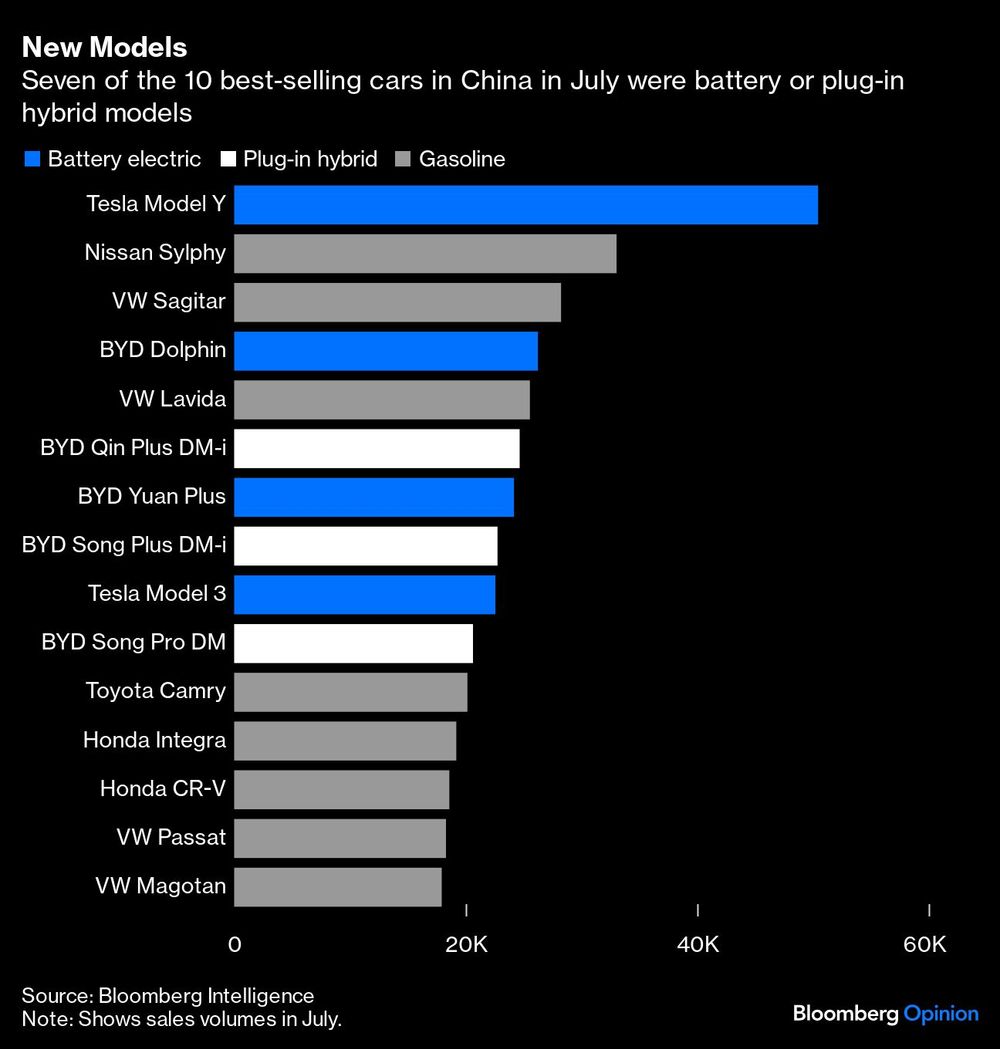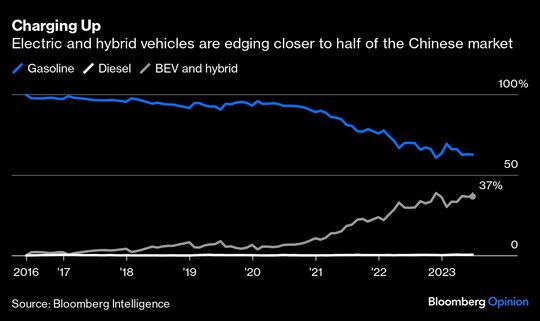Electric Vehicles Are Now Cheaper Than Petrol-Powered Cars In China
Hopefully, Malaysia will adopt the same business model.
Electric vehicles (EVs) used to be aimed at affluent customers thanks to their ludicrous price tag, but things are changing
EVs are undergoing a revolution of some sort in the Chinese market as prices for battery-driven cars are matching petrol-powered vehicles. Some electric cars are even cheaper than petrol cars in the same market.
This is, in part, thanks to Tesla Inc. and Mitsubishi Motor Corp.
According to Bloomberg, seven out of 10 cars in China are EVs with Elon Musk's SUV leading the charge since the first quarter of the year
The new kid on the block, BYD, sees their Dolphin hatchback overtaking established brands since its relatively new launch.
The price drop for EVs incidentally happened in the middle of a vicious price war
Led by Tesla, the price war drove the Chinese government to sign a pact last month promising to compete fairly and refrain from 'abnormal pricing', which was retracted shortly after it was introduced.
Imported cars are taking much of the market share that manufacturers are aggressively slashing prices in a desperate move to liquidate inventories.
The most significant change has been a change in how competitively positioned electric vehicles are. Previously retailing for twice as much as comparable high-end mid-sized sedans like the BMW AG 3 Series, Tesla's Model 3 is now the more economical choice.
Similarly, BYD's Dolphin is around 5,000 yuan (RM3,184) less expensive than a comparable small sedan, like as the 125,000-yuan (RM79,609) Sagitar, the local Jetta derivative from Volkswagen AG.
Even China's homegrown EV brands are proliferating rapidly in response to Tesla's penetration to their market
Chinese electric vehicle (EV) startups Li Auto, Nio, and Xpeng, often seen as China's main competitors to Tesla, reported strong monthly sales in July. This surge in sales was driven by a release of pent-up demand in the largest EV market globally.
Li Auto, headquartered in Beijing, delivered 34,134 vehicles to Chinese customers in July, surpassing its previous record of 32,575 from the previous month. Nio, based in Shanghai, achieved a delivery of 20,462 cars, which exceeded its previous record of 15,815 set in December of the prior year. Xpeng, located in Guangzhou, experienced a significant month-on-month increase of 27.7%, selling 11,008 units in July.
For most of the world, petrol-powered cars may still hold a cost advantage for now
However, China has managed to achieve what was thought to be impossible: to make battery-powered vehicles cheaper than conventional petrol-powered vehicles.
Here's hoping that the rest of the world could adopt the same pricing for EVs.



